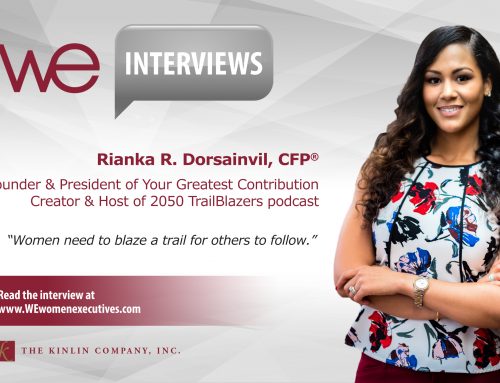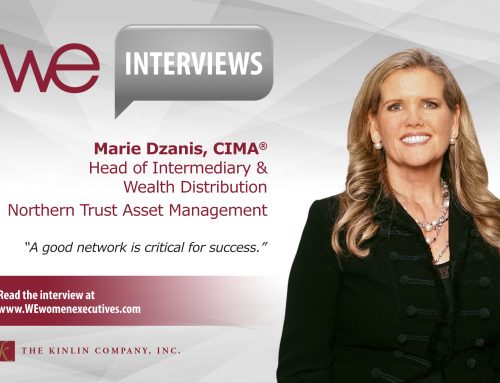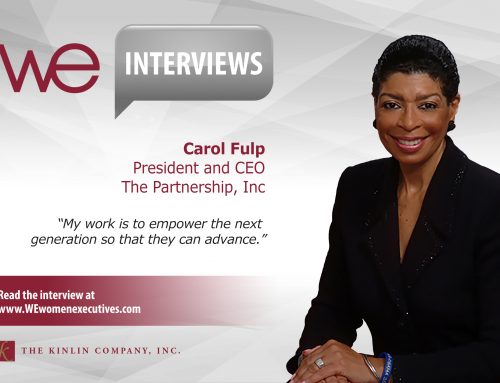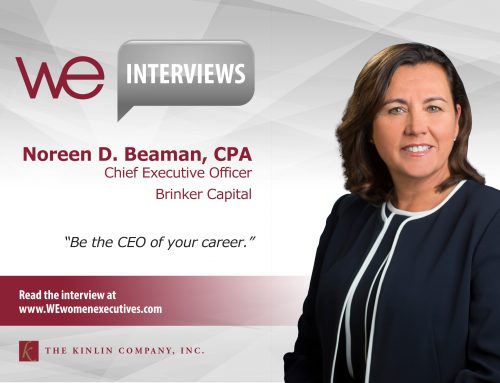
Anne Finucane, Bank of America’s Global Strategy and Marketing Chief
Anne Finucane, Bank of America’s Global Strategy and Marketing Chief, faces the unique challenge of rebranding and repositioning Bank of America, one of the world’s top brands before the global economic crisis, which has faced enormous challenges during the past four years. Noted by The New York Times as one of the most powerful figures in American banking, Finucane is known for her cool head in the midst of crisis and her deftness at creatively approaching situations of mind-boggling complexity. As Jack Welch, former CEO of General Electric and friend of Finucane stated, “She stays above the fray and observes it.”
Always Move Forward
When Finucane graduated with honors from the University of New Hampshire, with a major in English and a minor in Art, the last place she expected to end up was in banking. “When I graduated, I thought I would work for a few years, get my Master’s Degree in English or Art, and run an art gallery. But when I began working, I realized I loved business,” said Finucane when I sat down with her in late spring. “By arriving early and staying late, reading everything and being curious, I realized I could advance. I loved that it was a true meritocracy.”
Although she has had many important mentors, Finucane credits her first real boss, Elizabeth Cook, with showing her how to successfully balance a job, a family and career advancement. Finucane said, “Elizabeth was a divorced single mother in her 40s with a full-time job all the while working on an MBA. Just when I was starting out, she set me free by showing me what was possible – that a career path didn’t have to be cookie-cutter with an MBA by 26, landing the perfect job and moving up the ladder in the same company, in the traditional fashion.”
Finucane said in the years that followed working for the Mayor of Boston’s Office of Cultural Affairs, in television, and later as an executive at Hill Holliday, that while she has had a great career, and “While I was able to move my career forward, there were days, weeks, months and probably years when other people stepped ahead of me because I couldn’t always make myself available to all the opportunities.”
Finucane discussed these setbacks in a matter-of-fact manner. “I wanted a good marriage. I wanted to have children. I wanted to be a good mother. And sometimes that meant I couldn’t get on the plane and go to the meeting that would advance my career. However, I would always be thinking, I am in this for more than a year, and I am going to move forward anyway.”
Finucane encourages all young executives, both men and women, to recognize this like-minded approach. “If you are moving along in your career yet feel that other people are able to take advantage of opportunities that aren’t available to you, the key is to figure out how to keep moving forward, to assess if this is a timing issue or a competency issue and then deal with it.”
Teach Me
Finucane has advanced her career by continually learning new skills while often enlisting colleagues, bosses, and even clients to act as her teachers. Finucane said, “You need to have the ability to ask, ‘Will you teach me this?’”
Finucane would ask the accountants at her company to teach her how to read a profit and loss statement over lunch (which she would pay for). This base of knowledge helped her advance her career in broadcasting, advertising, and consulting.
When Finucane took her first job in banking, she found herself thrown into a complex merger between her new employer, Fleet Financial, and Shawmut Bank. She convinced the CEO that in order to handle the public outreach and marketing for the bank, she needed to understand the nuts and bolts of the merger. He sent her to New York with the deal team. Finucane said, “The value for me was being with the young turks who were up until 3 in the morning hammering out the numbers. No detail was left out, and if you could fuel yourself with enough coffee, the education was invaluable.”
Balance is Better
Finucane’s career trajectory has not been typical of most Wall Street power players. “I worked in broadcasting, advertising, public relations, and consultancies – jobs that were full of women. When I moved into banking, you would think that might have been the digression, but it wasn’t.”
As one of four women serving on Bank of America’s 11-member Executive Management Team, Finucane contends that the gender-balance within the company’s senior leadership is an asset to creating a fruitful discourse. “It is more complicated than just stating that women think differently than men,” Finucane said. “Bank of America’s current management team was born out of a lot of difficulty. We had just paid back TARP. We had taken on Countrywide and Merrill Lynch. We went from a domestic company to a global enterprise. We had regulatory issues to contend with — all during a slow-growth economy. There were many extremely complicated issues that had to be tackled simultaneously. And, frankly, women are very good at multitasking. It isn’t a case of women being better than men or vice versa. It is crucial that there be straightforwardness and an honest dialogue in a management team. I do think a diverse group of people leads to a more robust conversation.”
Finucane believes that companies should actively recruit female candidates and applauds CEO Brian Moynihan for his commitment to diversity within all ranks of Bank of America. She says, “Moynihan was head of Bank of America’s global diversity leadership group before he was CEO and continues to be. He is enormously committed to our efforts. That’s a real positive for the company.”
Thinking is Underrated
What is most exciting about Anne Finucane is the way her mind works. By approaching everything as if it is an ever-changing, three-dimensional puzzle from which she extracts information and synthesizes contradictions, she seems to discover new ways out of the maze. What others might see as a roadblock, she sees as an opportunity to learn more and to try out alternate approaches.
“In any situation, whether it is personal or professional, the first thing you have to do is give yourself time to think,” Finucane says. “Thinking is underrated. Take in all the information you can — even in chaos — stay focused, incorporate the input in a non-linear way, and recognize that things will change constantly. Nothing ever stands still.”





